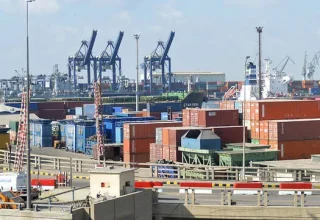
The federal government has received initial estimates of flood losses in Khyber Pakhtunkhwa, Gilgit-Baltistan, and Azad Jammu & Kashmir, with damages reaching Rs 63.79 billion, according to official sources.
The devastating monsoon floods have also ravaged Punjab’s agricultural belt, where rice and sugarcane crops have been hit the hardest.
Initial damage assessments
Sources said reconstruction needs in the three northern regions have been estimated at Rs 44.47 billion. Overall damages, including to infrastructure, crops, livestock, and housing, are valued at the equivalent of US $227 million.
Floods destroyed crops, livestock, and homes worth Rs 17.89 billion, while additional damages totaling Rs 45.90 billion have been reported.
Officials emphasised that these are preliminary estimates and may rise as assessments expand.
Punjab’s agriculture takes major hit
Punjab has emerged as the worst-hit province in terms of agriculture. Floodwaters have submerged more than 2.2 million acres of farmland, wiping out over 1 million acres of standing rice crop.
Authorities reported widespread damage to rice, sugarcane, corn, and cotton. Sugarcane plantations spread over 2.5 million acres were hit, while corn and cotton fields also suffered significant losses.
Proposals under review include waiving taxes and irrigation fees for farmers in the disaster-struck districts of Hafizabad, Sialkot, Narowal, Gujranwala, Gujarat, and Multan.
In contrast, Sindh has so far reported limited losses. About 3 percent of the onion crop has been damaged, while most floodwaters have remained within riverbanks. Only the Kachha areas have been affected, sparing the province’s broader agricultural belt.















































